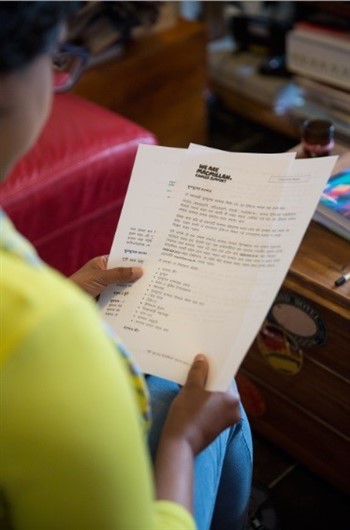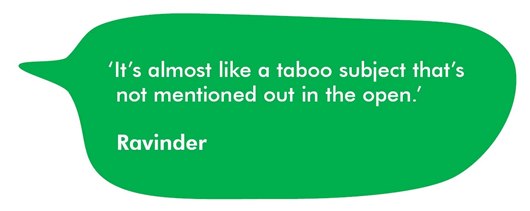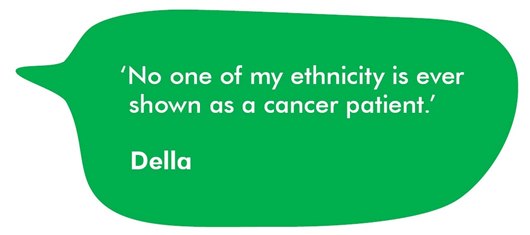It’s Ethnic Minority Cancer Awareness Month and from the end of July we are going to be promoting our translations to some of the harder to reach communities in the UK. Lynn, our Quality and Evaluation Officer, talks about these resources and the awareness month.
The risk of getting cancer if you are part of the Black and Minority ethnic (BME) population is generally lower than if you are part of the white population.
But some cancers are more common:
Awareness of cancer is generally lower in people from BME groups and people are often less likely to go for cancer screening. This can mean seeing a GP when cancer is at a later stage. People across all minority ethnic groups have also reported poorer experience of cancer services and a real gap in provision of cancer information.
What are we doing to raise awareness?
We aim to raise awareness of:
As part of the campaign, leaflets, posters and symptom awareness cards in Urdu, Bengali and Punjabi will be distributed to community and faith settings across Birmingham, Ealing, Tower Hamlets and Slough. We hope to reach more people who can benefit from our range of cancer information and the Macmillan Support Line service.

The campaign will run for three months. We’ll measure the take up of translated information and the number of people who use the support line interpretation service. What we learn will help us to reach more people living with cancer who can find it hard to access information.
Cancer information in your language
Being told that you have cancer, trying to understand all the treatment options and what this might mean is hard. But if you are one of over 4 million people living in England and Wales who have English as an additional language, this can be even more difficult. Language can be a real barrier to accessing health information and services. And for older people this impact can be particularly great.
Cancer information is available in 12 different languages at www.macmillan.org.uk/translations.

There are cancer fact sheets about cancer types, treatment and living with cancer in:
We also have symptom awareness cards in Urdu, Punjabi, Bengali, and Polish. You can order these from be.macmillan
The Macmillan Support Line (MSL) provides an interpretation service in over 200 languages. Call 0808 808 00 00 and ask in English for the language you need.
Your stories
Ravinder
Since her own experience of breast cancer Ravinder has been raising awareness in her local Asian community. She explains why living in an Asian community and having cancer can be hard.

You can read the rest of Ravinder's story.
Della
Della, born in London but from Nigeria, talks about the shock of a breast cancer diagnosis as she didn’t know other Black people with cancer.

You can read the rest of Della's story, or watch this video where she talks about being diagnosed with breast cancer:
You can also learn more from the Rich Picture – People living with cancer from Black and Minority Ethnic communities.
To see what else Macmillan's cancer information team has been blogging about, please visit our blog home page! You can subscribe to receive our blogs by email or RSS too.
We're with you every step of the way
The Macmillan team is here to help. Our cancer support specialists can answer your questions, offer support, or simply listen if you need a chat. Call us free on 0808 808 00 00.
Comments? Feel free to add them below (you need to be logged in).
Keep in touch Follow Macmillan’s cancer information team on Twitter @mac_cancerinfo
Whatever cancer throws your way, we’re right there with you.
We’re here to provide physical, financial and emotional support.
© Macmillan Cancer Support 2024 © Macmillan Cancer Support, registered charity in England and Wales (261017), Scotland (SC039907) and the Isle of Man (604). Also operating in Northern Ireland. A company limited by guarantee, registered in England and Wales company number 2400969. Isle of Man company number 4694F. Registered office: 3rd Floor, Bronze Building, The Forge, 105 Sumner Street, London, SE1 9HZ. VAT no: 668265007